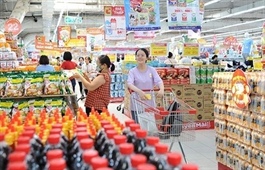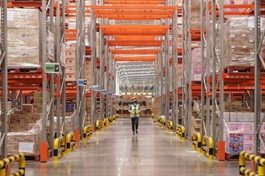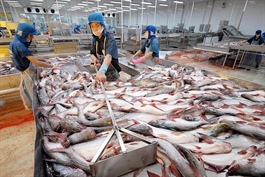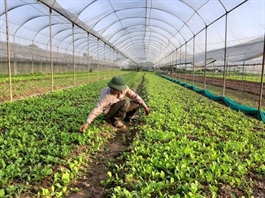How Vietnam F&B cope with geopolitical tensions?
How Vietnam F&B cope with geopolitical tensions?
Russia and Ukraine currently make up 26% of global exports of wheat and 7% fish, but the supplies are disrupted due to the impacts of ongoing conflict.
Vietnam’s seafood and rice are expected to be in hot demand to replace the disrupted supplies of key commodities as a result of the ongoing Russia-Ukraine conflict, according to Mirae Asset Vietnam (MASVN).
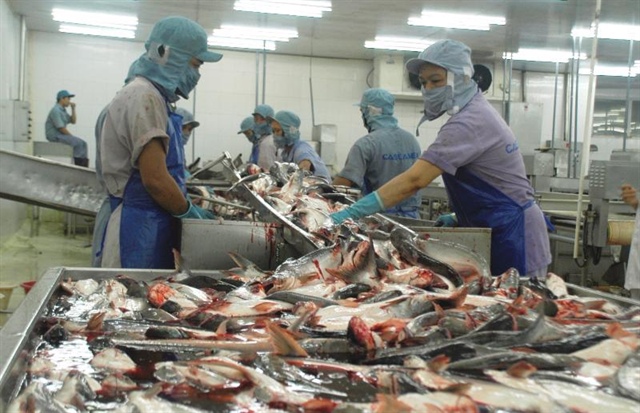
Processing catfish for exports. Photo: Giang Lam |
The securities company’s report suggested Vietnam’s revenue from retail services and goods last year was heavily affected by the third and fourth wave of the Covid-19 pandemic, which resulted in an expansion rate of only 0.2% – the lowest for the past 12 years.
In addition, the value from hospitality and catering services also suffered a sharp decline of 19.3% year-on-year, due to mobility restrictions to curb Covid-19 infections.
“It is safe to say 2021 was the most difficult year for Vietnam’s food and beverage (F&B) sector since the 1986 reform,” MASVN suggested.
According to the report, economic recovery in the post-pandemic period, the Russia-Ukraine conflict, and inflation would remain three major factors to impact Vietnam’s F&B in 2022.
In this regard, while the recovery would have positive impacts on the majority of businesses, inflation and rising prices of input materials, however, are putting huge pressure on their operations.
The report noted Russian and Ukraine currently make up 26% of global exports of wheat and 7% of fish.
The conflict between the two and subsequent sanctions would disrupt the supply of these products and higher prices on the global market as a result.
In this context, Vietnam as one of the world’s largest catfish exporters is a direct competitor of Russian pollock, and therefore, could become an alternative option.
Meanwhile, the shortage of wheat supply may lead to rising demand for other prices, including rice from Vietnam, with big suppliers such as Vinh Hoan Company, International Development & Investment Corporation (IDI), Nam Viet Company, Trung An Hi-tech Farming, or Loc Troi Corporation.
MASVN suggested there would be no risk of disruption for drinks, especially alcohol products, this year.
In addition, the consumption of beverages is expected to return to the pre-Covid-19 period, thanks to Vietnam’s lifting of travel restrictions since March 15.






